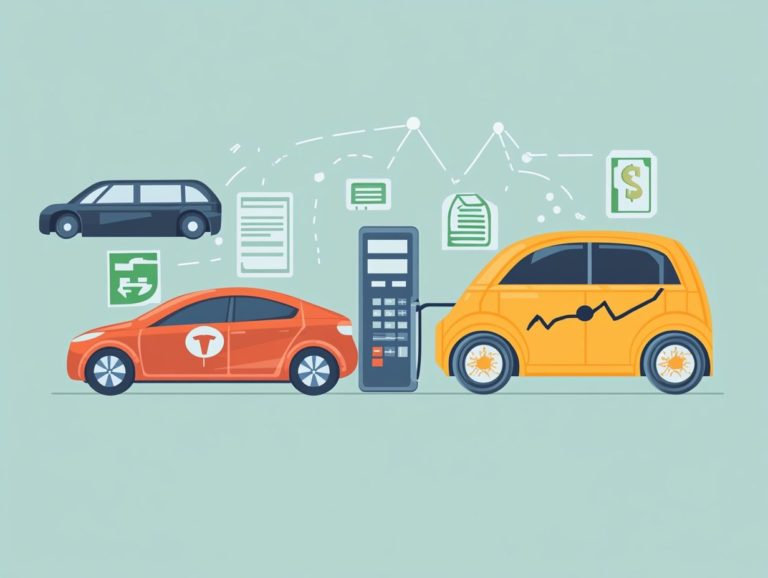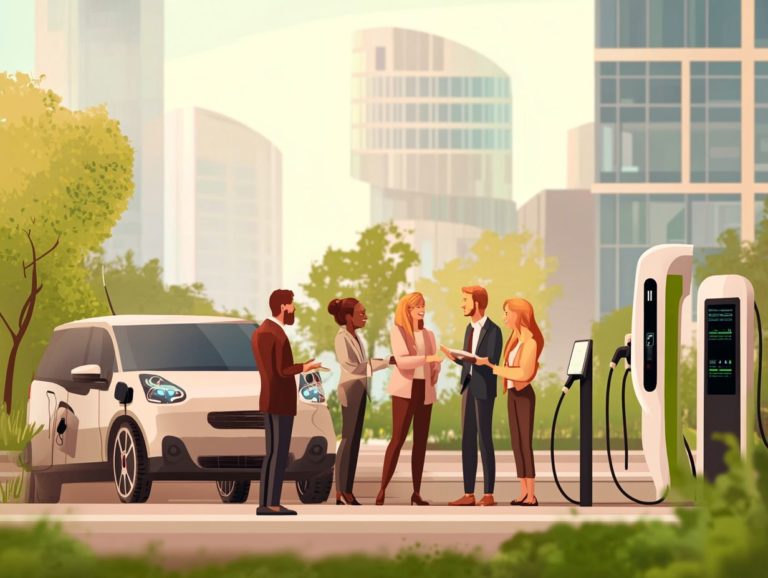guide to ev incentives in your state
Electric vehicles (EVs) are becoming an increasingly popular choice as a sustainable alternative to traditional cars, yet the initial investment can feel overwhelming.
This is precisely where EV incentives come into play. These exciting financial benefits can slash your costs, making the transition to electric vehicles much more feasible.
This article delves into the myriad incentives available at the federal, state, and local levels, along with practical strategies for maximizing your savings. Explore how these incentives can work in your favor and help you contribute to a greener future.
Contents
Key Takeaways:

Discover federal, state, and local EV incentives to save money on purchasing an electric vehicle (EV).
Learn about the types of EV incentives in your state, including tax credits, rebates, and programs detailed in the state-specific EV rebates: a comprehensive guide.
Maximize your savings on an EV by taking advantage of all available incentives and following tips for maximizing their benefits.
Don t miss out on these amazing opportunities to save money on your electric vehicle purchase!
What are EV Incentives and Why They Matter
Electric vehicle (EV) incentives serve as essential financial tools designed to foster the transition to cleaner transportation options. These incentives not only aid in reducing greenhouse gas emissions but also promote the adoption of advanced technology.
By offering tax credits and rebates, they render electric vehicles more accessible, resulting in substantial financial savings for you. These incentives also help improve air quality and reduce healthcare costs linked to air pollution, underscoring their importance for both individuals and society at large.
Federal EV Incentives
Federal EV incentives are designed to simplify your journey toward purchasing electric vehicles across the United States. To maximize your savings, it’s important to know how to find the best EV incentives in 2024. These valuable tax credits and rebates can significantly reduce your acquisition costs.
Thanks to the Inflation Reduction Act, you can enjoy generous incentives for Battery Electric Vehicles (BEVs) and Plug-in Hybrid Electric Vehicles (PHEVs) to make your transition to cleaner transportation easier and more affordable.
Overview of Federal Tax Credits and Rebates
Federal tax credits and rebates for electric vehicles can provide you with substantial financial benefits, with the credits fluctuating based on battery capacity, resulting in significant savings when you purchase your vehicle.
These credits also depend on the specific type of vehicle, as manufacturers often have different eligibility criteria. Generally, applying for these credits requires you to detail your vehicle purchase on your tax returns, allowing you to claim the credit and reduce your overall tax liability.
It s important to stay informed about the current regulations, as the amount of the credit may decrease once a manufacturer surpasses a certain number of electrified vehicle sales.
By leveraging these credits, you not only gain immediate financial relief but also play a part in fostering a more sustainable future, making electric vehicles an appealing choice for environmentally conscious consumers.
State EV Incentives
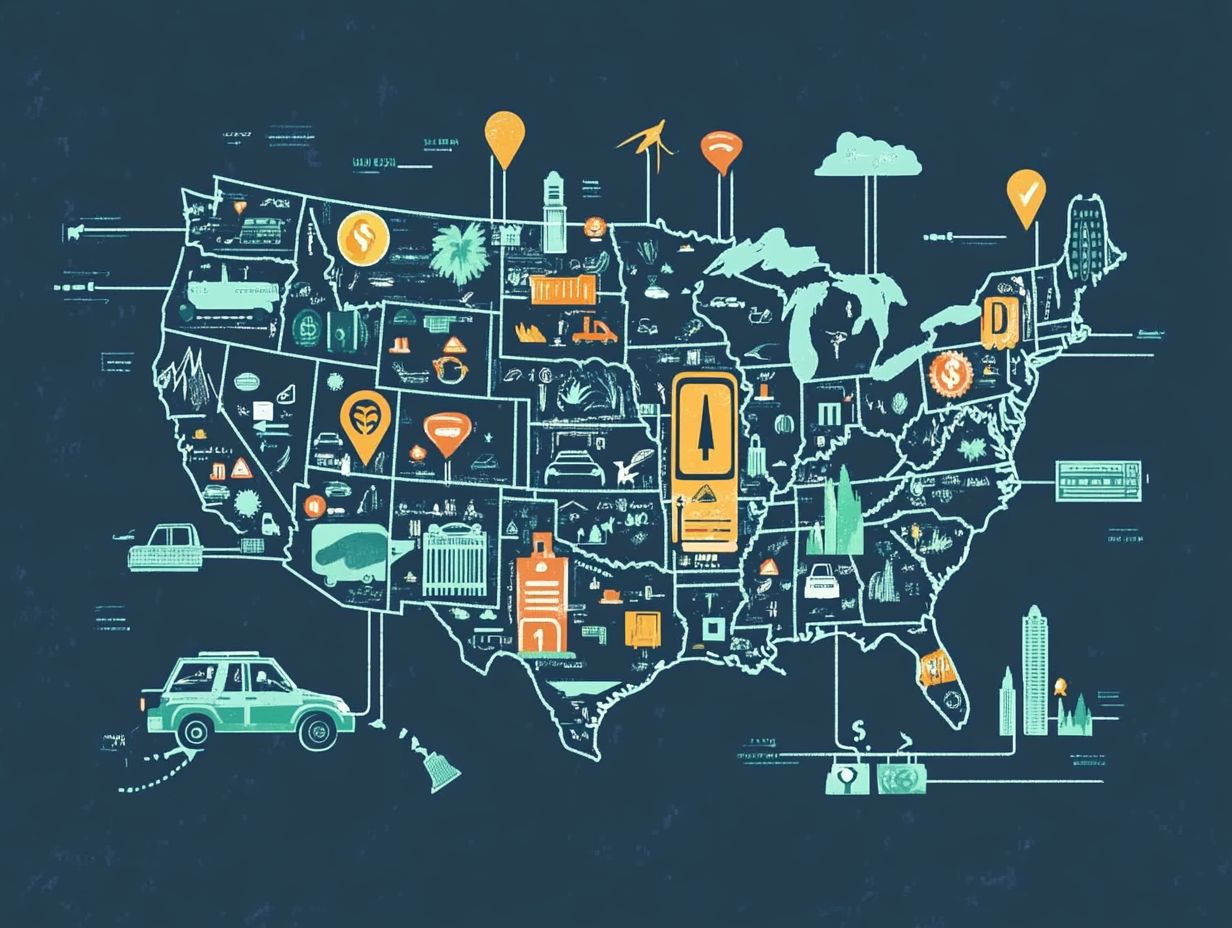
State EV incentives differ significantly throughout the United States, with tailored programs designed to encourage electric vehicle adoption. For more insights on how to navigate EV rebates in different states, consider looking into examples from California, Florida, New Hampshire, Oregon, Pennsylvania, and Washington.
These state-specific initiatives frequently enhance federal incentives, providing you with additional financial support and benefits as you explore navigating the world of EV financial incentives while making the transition to electric vehicles.
Different Types of Incentives Offered by States
States offer a compelling array of incentives for electric vehicles, including tax credits, rebates, and grants designed to lower your upfront costs while supporting clean air initiatives. To learn more about how state incentives differ for EVs, explore the available options in your area.
These incentives lower the upfront cost of electric vehicles, making them more accessible. They also encourage a long-term investment in sustainable technologies.
For instance, tax credits can significantly reduce your overall cost. Rebates provide immediate financial relief at the point of sale. Grants also help build charging stations, making it easier to transition to electric mobility.
State incentives are game-changers! By decreasing greenhouse gas emissions, they foster a cleaner, healthier future for your community and contribute to a vibrant world.
How to Find Incentives in Your State
Finding state EV incentives is easy with resources like Plug In America and Charge Ahead. These platforms offer comprehensive databases that empower you to locate the understanding state-level EV incentive programs available in your state.
Visit their official websites, and you’ll find user-friendly interfaces to explore various financial incentives, tax credits, and rebates for electric vehicle buyers.
It s wise to check government platforms like the Department of Energy or state-specific energy agencies. You can access regularly updated information about eligibility criteria and application processes.
Local initiatives might offer unique programs, such as rebates for home charging stations. This gives you the dual benefit of making a sustainable choice while reducing upfront costs.
Using these tools can help you save money and make your transition to electric vehicles smoother and more appealing.
Local EV Incentives
Local EV incentives can significantly enhance the affordability and practicality of electric vehicles for you, especially when considering the top 5 state incentives for electric vehicle owners.
Many municipalities and utility companies are rolling out tailored programs that promote energy efficiency and encourage your transition to EV adoption.
Municipal and Utility Company Incentives
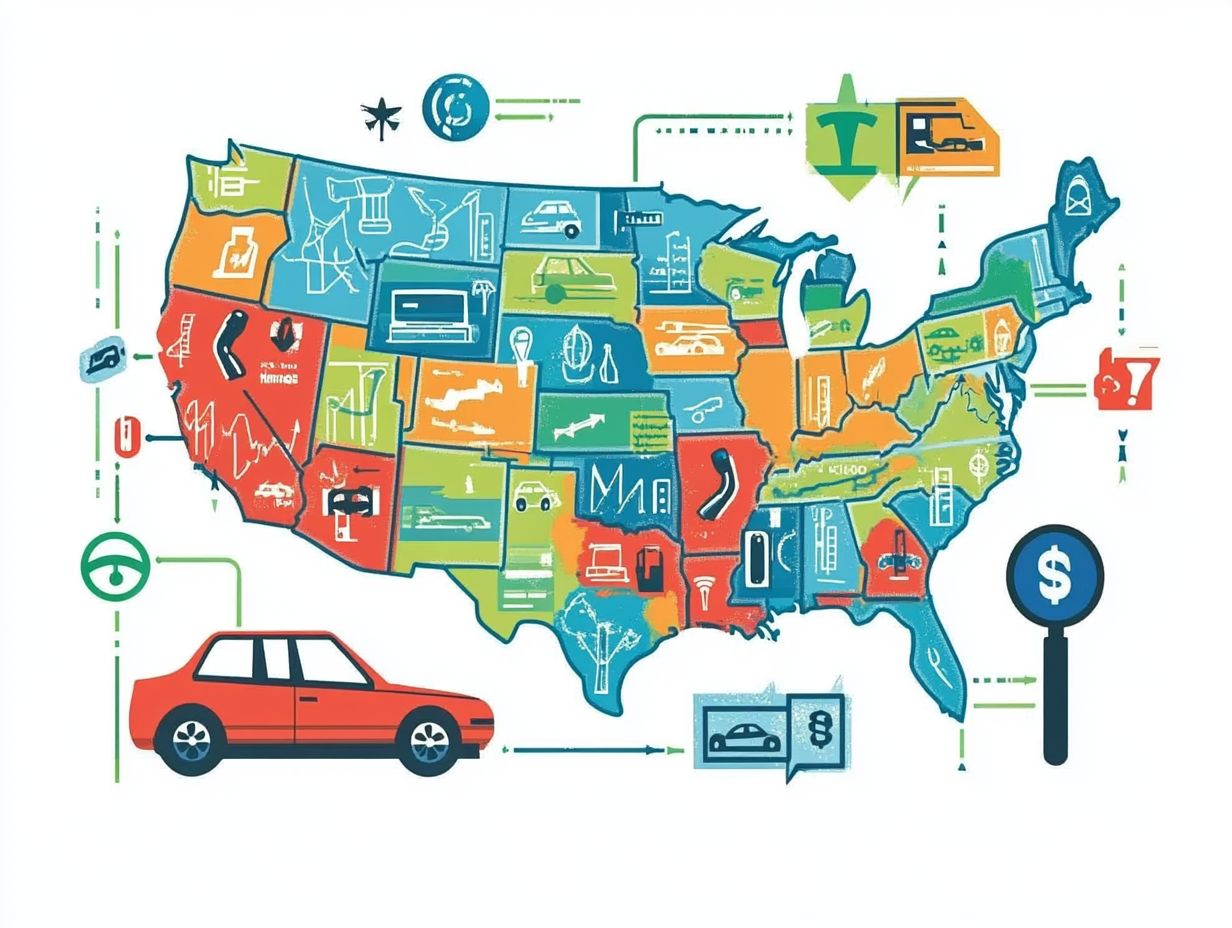
Municipal and utility company incentives often come in the form of rebates, reduced charging rates, and grants. These are designed to help you save money and encourage electric vehicle adoption in your community.
These initiatives ease the financial burden of buying an electric vehicle and promote sustainable practices among residents like you.
For example, a recent case study from San Diego shows how a local utility partnered with the city to offer big discounts, leading to a 30% increase in electric vehicle registrations.
Residents reported that lower charging rates have helped many save significantly on their monthly energy bills, highlighting the long-term financial benefits.
Ultimately, such programs play a crucial role in contributing to cleaner air and a healthier environment. They align seamlessly with broader municipal goals of sustainability and reducing greenhouse gas emissions.
Maximizing EV Incentives
Maximizing EV incentives is essential if you’re looking to make the most of your electric vehicle purchase.
By doing so, you can seize available financial savings and embrace the cutting-edge technology the marketplace has to offer.
Tips for Taking Advantage of Available Incentives
To take advantage of available EV incentives, dive deep into research. Stay attuned to evolving laws and engage with local dealers to uncover financial benefits during your electric vehicle purchase journey.
Creating a checklist is invaluable. It allows you to track essential documentation like proof of purchase and vehicle registration, making the incentive application process easier.
Keep an eye on deadlines; missing these could mean losing savings. For example, a family in California saved over $7,000 by timing their purchase perfectly with state rebates! Imagine what you could save!
Utilizing local resources such as community workshops or forums where seasoned buyers share their insights can deepen your understanding of the various incentives available. This makes the entire process not only more manageable but also more rewarding.
Frequently Asked Questions
What are EV incentives?
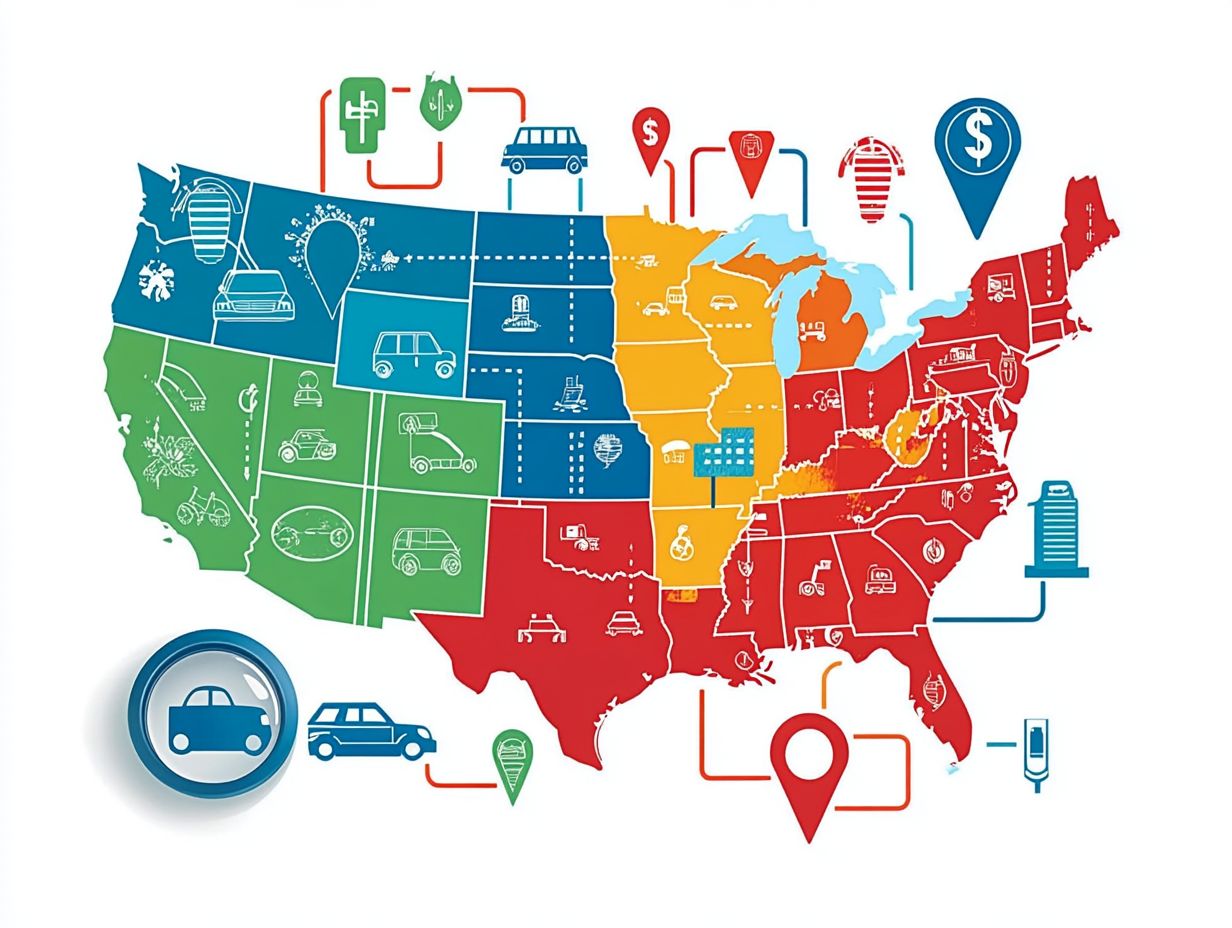
EV incentives are financial or non-financial benefits offered by state or local governments to encourage the adoption and use of electric vehicles (EVs). These incentives can include tax credits, rebates, grants, or other perks such as access to HOV lanes or free parking.
What types of EV incentives are available in my state?
The types of EV incentives available vary by state, but common ones include tax credits, rebates, and special utility rates for EV charging. For more information on these options, check out the best online resources for EV incentives. Some states also offer incentives for installing EV charging stations and discounted vehicle registration fees for EV owners.
How can I find out what EV incentives are available in my state?
To find out what EV incentives are available in your state, visit the website of your state’s Department of Transportation or Energy. Additionally, you can learn how to find EV incentives in your area by checking with your local utility company or EV dealership for information on available incentives.
Who is eligible for EV incentives?
Eligibility for EV incentives varies by state and program, but typically, anyone who purchases or leases an eligible EV can qualify for incentives. Some programs may have income restrictions or requirements for the type of vehicle purchased.
Are there any limitations or restrictions on EV incentives?
Yes, there may be limitations or restrictions on EV incentives, such as a cap on the number of incentives available or a limit on the amount of the credit or rebate. It’s important to carefully review the requirements and guidelines for each incentive program to ensure eligibility.
Do EV incentives ever expire?
Some EV incentives have deadlines. Act quickly to secure your financial benefits! It’s essential to check the details of each program to determine if there are any time limitations for claiming the incentive. In some cases, the availability of incentives may also be subject to funding availability.
Check out the incentives available in your state today for maximum savings!



